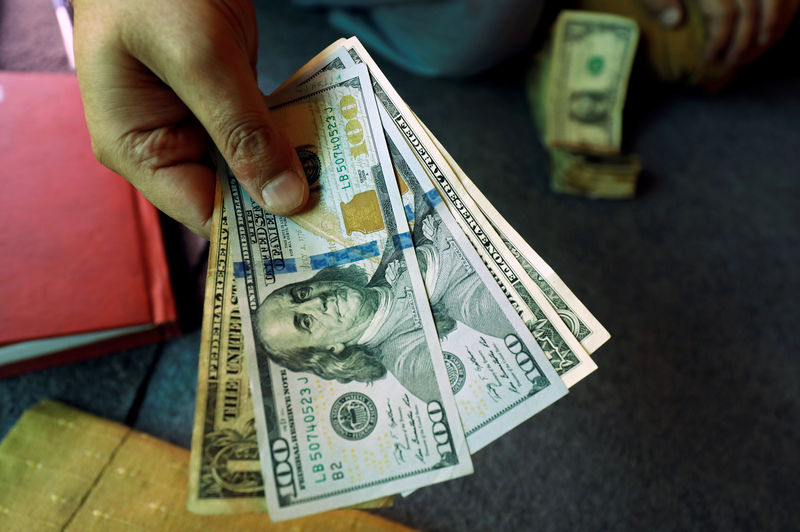By Peter Nurse
Investing.com - The U.S. dollar edged higher in the early European session Friday, and looks set to post its first weekly gain in more than a month on growing expectations that the Federal Reserve will tighten monetary policy further next month.
At 03:05 ET (07:05 GMT), the Dollar Index, which tracks the greenback against a basket of six other currencies, traded 0.1% higher to 101.720, and was on course for a weekly gain of around 0.3%, after five straight weeks of losses.
Commentary from a number of Fed policymakers this week has pointed to the U.S. central bank raising interest rates by 25 basis points in early May, judging that inflation is still at problematic levels and monetary policy needs to be tightened still.
That said, this could be the last increase of the cycle as economic data suggests a slowing U.S. economy, and money markets are pricing in rate cuts as early as July through to the end of the year.
Flash U.S. PMI figures for April are due later Friday, which will provide further clarity on the overall economic health of the largest economy in the world.
EUR/USD dropped 0.2% to 1.0947, ahead of the release of manufacturing and services PMI data in a number of eurozone countries.
Although the manufacturing surveys are seen stuck in contraction territory, the services sector is expected to remain robust, adding to inflationary pressure.
The European Central Bank's monetary policy "still has a bit of way to go" to bring back inflation towards its 2% goal, ECB President Christine Lagarde said on Thursday, implying more rate hikes ahead.
“The ECB story is a mildly supportive one for the euro, but the international environment is yet to favour a big push above 1.10 in EUR/USD,” said analysts at ING, in a note.
GBP/USD fell 0.3% to 1.2403, after U.K. retail sales fell by a greater-than-expected 0.9% in March from February, with British consumers affected by an elevated inflation rate, which stayed in double digits in March.
Elsewhere, AUD/USD slumped 0.8% to 0.6688, USD/JPY fell 0.3% to 133.88, with losses limited after data showed Japanese exports grew more than expected in March, while imports rose at a slower-than-expected pace.
USD/CNY rose 0.3% to 6.8948, with the yuan hit after data showed that China’s important manufacturing sector continued to struggle with slow demand.
